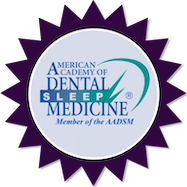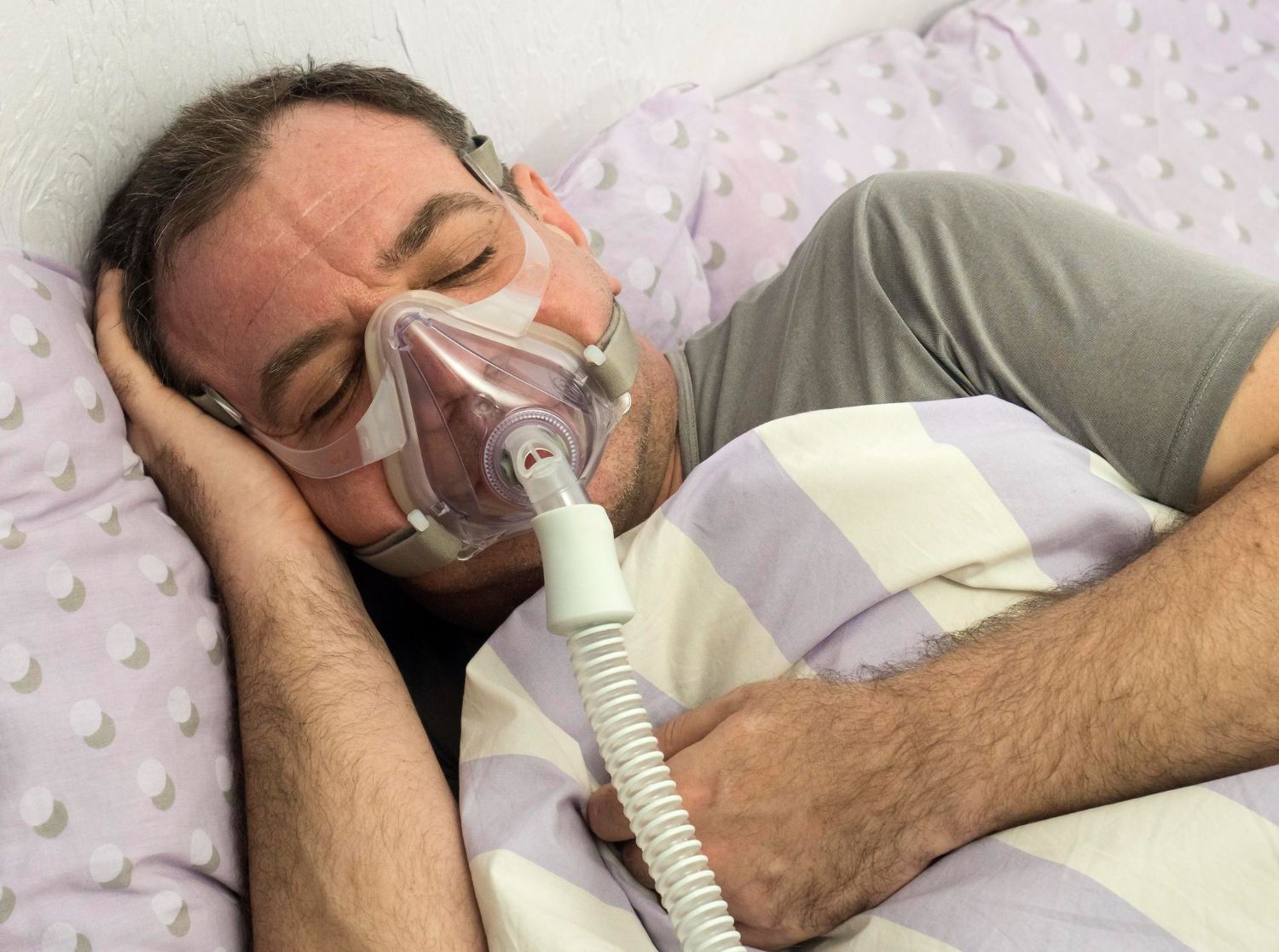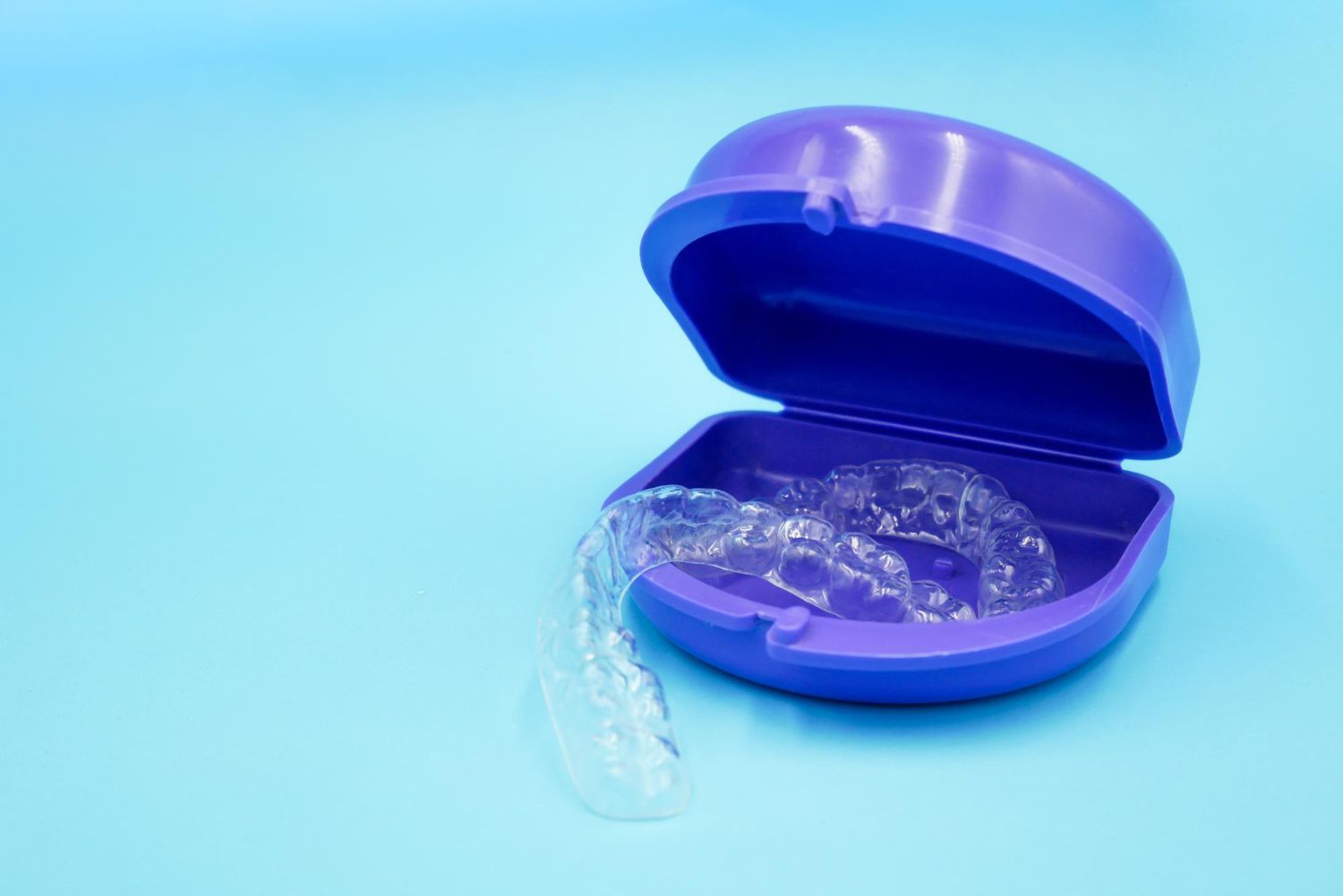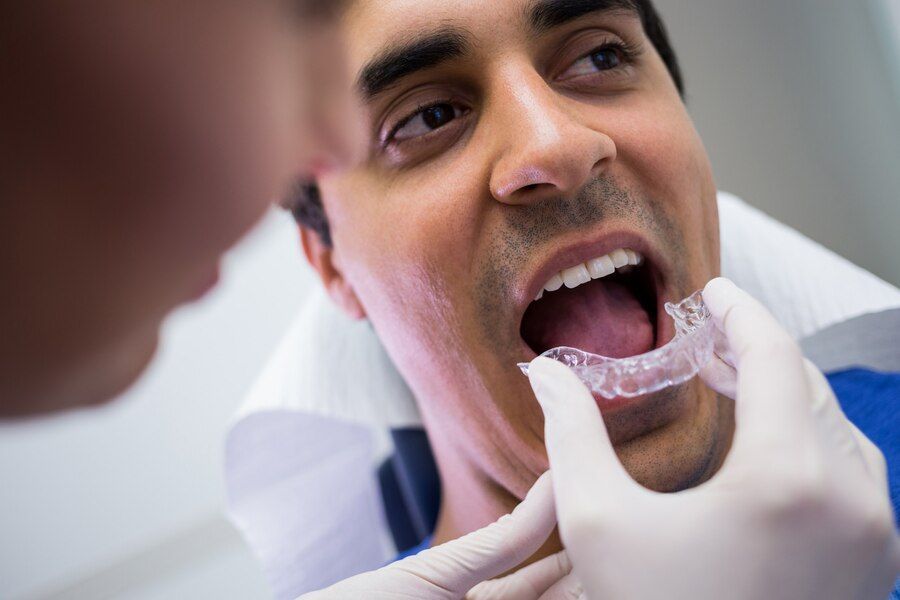Welcome to Fuller Sleep & TMJ Solutions | Greensboro, NC | frontdesk@fullersleep.com
Dental Health and Sleep Apnea: Understanding the Connection
Sleep apnea, a common sleep disorder that affects millions of individuals worldwide, is characterized by the recurrent collapse of the upper airway during sleep leading to disrupted breathing. Although many factors can contribute to sleep apnea, such as obesity, genetics, and lifestyle habits, few people realize the critical role that dental health plays in the diagnosis, treatment, and management of this condition.
In this blog post, we will highlight the connection between dental health and sleep apnea, shedding light on how dental professionals like those at Fuller Sleep & TMJ Solutions can detect signs of sleep apnea through dental examinations, provide tailored treatment options, and promote better sleep hygiene through oral care education. By offering a comprehensive approach to managing sleep apnea that takes dental health into consideration, Fuller Sleep & TMJ Solutions aims to empower patients with the knowledge and tools necessary to optimize their health and well-being.
Common Dental Issues Associated with Sleep Apnea
Several dental conditions are often linked to sleep apnea, either directly or indirectly. These conditions can exacerbate sleep apnea symptoms, making it essential to address them while managing sleep apnea. Some of these common dental issues include:
1. Bruxism (Teeth Grinding): Bruxism, or the habitual grinding and clenching of teeth, is frequently observed in sleep apnea patients. This forceful grinding can damage teeth, leading to tooth sensitivity, enamel erosion, and even cracked teeth. Chronic bruxism can also result in the development of temporomandibular joint disorder (TMJ).
2. Temporomandibular Joint Disorder (TMJ): TMJ is a condition that affects the jaw joints and the muscles responsible for jaw movement, causing pain, clicking sounds, and limited jaw mobility. Individuals with sleep apnea are more prone to developing TMJ due to the increased possibility of oxygen deprivation, causing muscle spasms and tension around the jaw area.
3. Dry Mouth and Sleep-Related Breathing Disorders: Sleep apnea patients may experience dry mouth due to mouth breathing and reduced saliva production during sleep, increasing the risk of tooth decay, gum disease, and bad breath.
Dental Treatments for Sleep Apnea: Customized Solutions
Dentists like the experts at Fuller Sleep & TMJ Solutions can provide various dental treatments to address sleep apnea and its related dental issues. Some popular options include:
1. Custom Oral Appliances: Oral appliances, similar to mouthguards, can be custom-fitted to help keep the airway open during sleep by repositioning the tongue or jaw. These appliances are particularly useful for individuals with mild to moderate sleep apnea or those who cannot tolerate continuous positive airway pressure (CPAP) therapy.
2. Orthodontics: Orthodontic treatments, such as braces or clear aligners, can help correct dental malocclusions and jaw misalignments that contribute to sleep apnea by affecting airway size and position. By improving how the upper and lower teeth bite together, orthodontic treatments can provide relief from sleep apnea symptoms.
3. Dental Surgeries: In cases where severe dental or jaw issues contribute to sleep apnea, dental surgeries may be recommended. These procedures can include palatal expansion, mandibular advancement, or maxillomandibular advancement surgery, which aim to correct airway obstructions and improve breathing during sleep.
The Role of Dental Examinations in Sleep Apnea Diagnosis
Regular dental checkups can be a valuable tool in detecting sleep apnea, as dentists are well-positioned to identify potential signs and symptoms related to this disorder. During an examination, the dental professional can look for the following indicators of sleep apnea:
1. Worn or damaged teeth and dental restorations, which can signify bruxism or teeth grinding
2. Signs of TMJ or jaw joint problems
3. Unusual or excessively large tongue and soft palate
4. Malocclusions or overbites that can contribute to airway obstruction
If these signs are present, the dentist may recommend further testing or referral to a sleep specialist for a more comprehensive evaluation.
Educating Patients on Sleep Hygiene and Oral Care
In addition to providing treatment options, dental professionals at clinics like Fuller Sleep & TMJ Solutions also play a critical role in educating patients about the importance of maintaining proper sleep hygiene and oral care habits for overall health. Tips for improved sleep hygiene may include:
1. Establishing a consistent sleep schedule
2. Creating a comfortable and quiet sleep environment
3. Avoiding exposure to screens or bright lights before bedtime
4. Limiting caffeine and alcohol intake in the evening
5. Incorporating relaxation techniques to help facilitate sleep
By addressing both dental health and sleep hygiene, patients have a much higher chance of successfully managing their sleep apnea and maintaining long-term health improvements.
Conclusion
The connection between dental health and sleep apnea should not be overlooked. By understanding this crucial link, patients can make informed decisions about their treatment and actively engage in a comprehensive approach to managing sleep apnea.
At Fuller Sleep & TMJ Solutions, a
dental sleep apnea clinic in Greensboro, North Carolina, experts are well-equipped to tackle sleep apnea using cutting-edge dental approaches, helping patients achieve a more restful and healthy night's sleep. Our team of dedicated dental professionals offers specialized care and treatment options tailored to each patient's unique needs, ensuring the best possible outcomes in sleep apnea management. Contact us today to schedule an appointment and begin your journey toward better dental health and improved sleep!

CONTACT US
Fuller Sleep & TMJ Solutions
1515 West Cornwallis Dr Suite 110 Greensboro, NC 27408
BUSINESS HOURS
Monday: 8am – 5pm
Tuesday: 8am – 5pm
Wednesday: 8am – 5pm
Thursdays: 8am – 2pm
All Rights Reserved | Fuller Sleep & TMJ Solutions
© 2023 All Rights Reserved | Fuller Sleep & TMJ Solutions
Website designed by: Morningdove - Accessibility Statement












